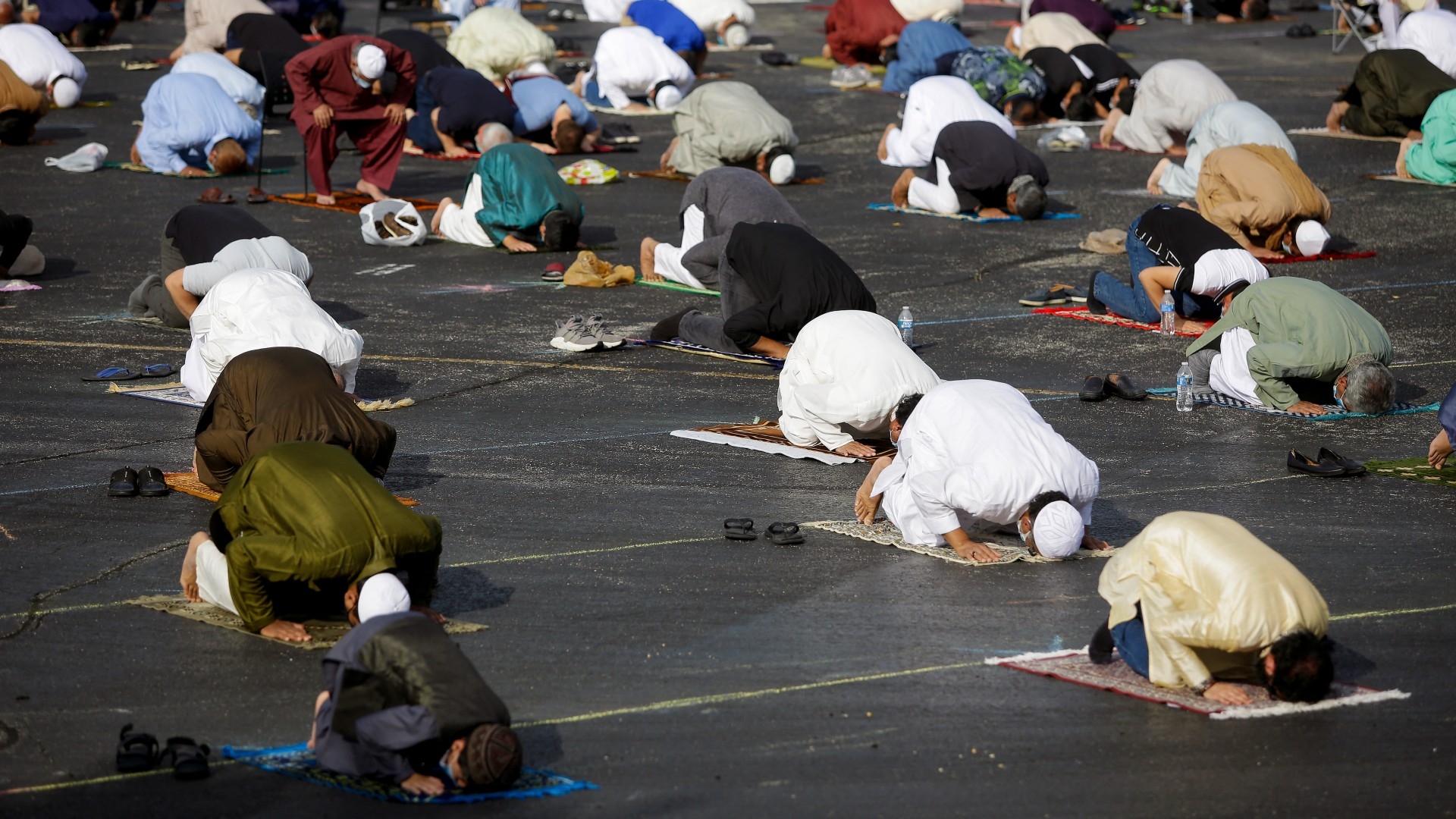Prejudice against Muslims higher than towards any other group in US, poll finds

Favourable attitudes towards Muslims among Americans have declined and public prejudice against them remains higher than any other religious, ethnic or racial group, a poll published by The Brookings Institution has found.
Released on Tuesday and conducted between 26 July and 1 August, the University of Maryland Critical Issues Poll (UMDCIP) consists of two tracks, one measuring the change in American public attitudes concerning Islam and Muslims and the second which studied prejudice towards racial, religious and ethnic groups - including Jews and Muslims.
Generally, favourable views of Muslims and Islam increased over the last year. The findings show a drop to 64 percent from 78 percent in comparison to 2022 regarding favourable views of Muslims, and a drop to 48 percent in favourable attitudes towards Islam.
Favourable views of Muslims dropped among both Democrats and Republicans, but the drop was starker among Republicans.
In February 2024, 52 percent of Republicans viewed Muslims favourably, but in July 2024, the figure dropped to 46 percent. For Democrats, the drop went from 83 percent in February to 80 percent in July.
New MEE newsletter: Jerusalem Dispatch
Sign up to get the latest insights and analysis on Israel-Palestine, alongside Turkey Unpacked and other MEE newsletters
The survey sampled 1,510 American adults with oversamples of 202 Blacks and 200 Hispanics.
Anti-Muslim versus anti-Jewish sentiment
Following Israel's war on Gaza, there has been a dramatic increase in incidents of hate and prejudice against both Jews and Muslims globally.
Prejudice toward Jews and Judaism is included in the poll for the first time.
Among all respondents, favourable views of Muslims were at 64 percent and 48 percent for Islam while it stood at 86 percent for Jews and 77 percent for Judaism.
"The gap between attitudes toward people and religion is not uncommon and has been consistently found in our previous polling, particularly toward Muslims," the poll says.
Another key factor is race. While only nine percent of white people view Jews as unfavourable, 37 percent of white people view Muslims as unfavourable. Among Black and Hispanic people, the difference is less stark, with 29 percent of Black people viewing Muslims as unfavourable, and 21 percent for Jews. For Hispanics, 33 percent view Muslims unfavourably, with 22 percent for Jews.
College education, familiarity and personal relationships with Jews and Muslims are significant contributing factors that lead to more favourable views towards both Jews and Muslims, according to the poll.
Generational gap
The poll shows that younger Americans have more favourable views towards Jews than Muslims overall, but there is a generational gap. Americans under 30 still have more favourable opinions of Muslims and Islam than Americans aged 30 and over.
While factors explaining this trend still need probing, the reason for the less favourable views of Jews among young people may be the fact that white people tend to have more favourable views of Jews than non-whites, although the share of white people among younger Americans is smaller.
Prejudice toward Muslims is also higher than other groups when it comes to their perceived contributions to American society, the poll says.
Polling shows that only one-third (37 percent) of Americans believe Muslims strengthen American society, while a majority of Americans say the same about every other ethnic, racial and religious group.
Young Americans (under 30) have identical views of the degree to which Muslims and Jews strengthen American society, but older Americans believe Jews (55 percent) contribute far more to American society than Muslims (32 percent).
The lowest figure is found among older Republican Americans, with only 21 percent believing Muslims contribute to American society.
Middle East Eye delivers independent and unrivalled coverage and analysis of the Middle East, North Africa and beyond. To learn more about republishing this content and the associated fees, please fill out this form. More about MEE can be found here.

